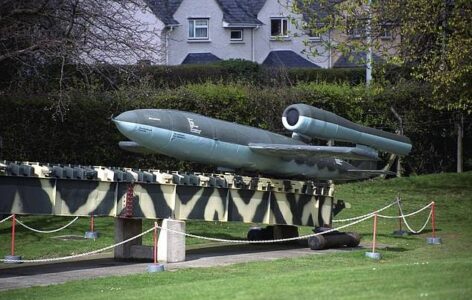
Islamic State terrorists used British company as cover to buy parts for Nazi doodlebug bomb plot
An Islamic State jihadi used a British company as a front to buy parts for Nazi-style ‘doodlebug’ flying bombs, it can be revealed.
An 18-month investigation has uncovered an international Islamic State procurement network which exploited lax rules in the UK to set up fake companies and buy weapons from abroad.
Cardiff-based businessman Siful Haque Sujan was among those who set up fake companies, a report by Conflict Armament Research (CAR) revealed.
The UK resident registered Advance Technology Global Ltd in Britain and posed as a fictitious man named David Soren, the report said.
He then bought weapon parts and shipped them to Turkey before getting them smuggled into IS territory in Syria and in some cases on to Iraq.
One online purchase was a large ‘pulse-jet’ engine from a US company which was later found at a hospital complex in Mosul, northern Iraq.
Sujan asked the company’s owner whether the engine could be used to power a 40kg (88lb) model plane. Pulse-jet engines were originally developed for Hitler’s V-1 flying bombs, known as ‘doodlebugs’.
Experts feared Sujan planned to use the engine to power an armed drone but the weapon was still in experimental stage when IS began to lose ground.
An internal IS document referred to the purchase, saying militants were ‘working on applying the V-1 engine used by Hitler to attack Great Britain’.
Sujan was killed in a US-led coalition air strike in Raqqa, Syria, in December 2015.
The report states: ‘IS weapon designers posed as legitimate civilian technology developers to do business with suppliers of high-tech goods and software in North America, Europe and East Asia.
‘The designers hid behind pseudonyms … and the fictitious personnel of front companies. In doing so, they exploited the lack of checks on directors and shareholders of UK-registered companies.’
A CAR spokesman said rules around setting up companies in the UK were far less stringent than in other countries and easier than ‘joining a gym’.
Source: Daily Mail





